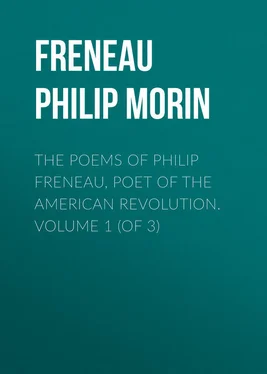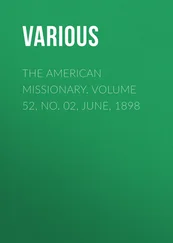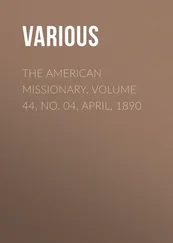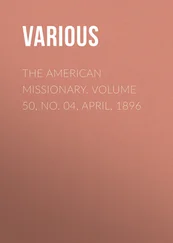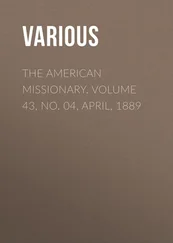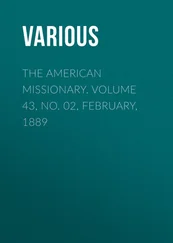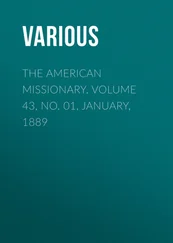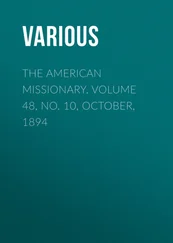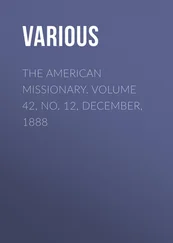Philip Freneau - The Poems of Philip Freneau, Poet of the American Revolution. Volume 1 (of 3)
Здесь есть возможность читать онлайн «Philip Freneau - The Poems of Philip Freneau, Poet of the American Revolution. Volume 1 (of 3)» — ознакомительный отрывок электронной книги совершенно бесплатно, а после прочтения отрывка купить полную версию. В некоторых случаях можно слушать аудио, скачать через торрент в формате fb2 и присутствует краткое содержание. Жанр: Поэзия, foreign_antique, foreign_prose, foreign_poetry, на английском языке. Описание произведения, (предисловие) а так же отзывы посетителей доступны на портале библиотеки ЛибКат.
- Название:The Poems of Philip Freneau, Poet of the American Revolution. Volume 1 (of 3)
- Автор:
- Жанр:
- Год:неизвестен
- ISBN:нет данных
- Рейтинг книги:4 / 5. Голосов: 1
-
Избранное:Добавить в избранное
- Отзывы:
-
Ваша оценка:
- 80
- 1
- 2
- 3
- 4
- 5
The Poems of Philip Freneau, Poet of the American Revolution. Volume 1 (of 3): краткое содержание, описание и аннотация
Предлагаем к чтению аннотацию, описание, краткое содержание или предисловие (зависит от того, что написал сам автор книги «The Poems of Philip Freneau, Poet of the American Revolution. Volume 1 (of 3)»). Если вы не нашли необходимую информацию о книге — напишите в комментариях, мы постараемся отыскать её.
The Poems of Philip Freneau, Poet of the American Revolution. Volume 1 (of 3) — читать онлайн ознакомительный отрывок
Ниже представлен текст книги, разбитый по страницам. Система сохранения места последней прочитанной страницы, позволяет с удобством читать онлайн бесплатно книгу «The Poems of Philip Freneau, Poet of the American Revolution. Volume 1 (of 3)», без необходимости каждый раз заново искать на чём Вы остановились. Поставьте закладку, и сможете в любой момент перейти на страницу, на которой закончили чтение.
Интервал:
Закладка:
"Personally appeared before me, Matthew Clarkson, Mayor of the City of Philadelphia, Philip Freneau, of the City of Philadelphia, who, being duly sworn, doth depose and say, That no negociation was ever opened with him by Thomas Jefferson, Secretary of State, for the establishment or institution of the National Gazette : that the deponent's coming to the City of Philadelphia, as publisher of a Newspaper, was at no time urged, advised, or influenced by the above officer, but that it was his own voluntary act; and that the said Gazette, nor the Editor thereof, was ever directed, controuled, or attempted to be influenced, in any manner, either by the Secretary of State, or any of his friends; nor was a line ever, directly or indirectly, written, dictated, or composed for it by that officer, but that the Editor has consulted his own judgment alone in the conducting of it – free – unfettered – and uninfluenced.
"Philip Freneau. "Sworn the 6th August, 1772, before "Matthew Clarkson, Mayor."Hamilton followed, August 11th, with another article. He emphatically discredited Freneau's oath, declaring that "facts spoke louder than words, and under certain circumstances louder than oaths;" that "the editor of the National Gazette must not think to swear away their efficacy;" that "if he was truly, as they announced, the pensioned tool of the public character who had been named, no violation of truth in any shape ought to astonish; equivocations and mental reservations were the too common refuge of minds struggling to escape from disgraceful imputations." The article then proceeded to show that Jefferson did really establish the Gazette through a particular friend.
Freneau at once declined to answer further the attacks, on the ground that they were mere "personal charges," and Hamilton promptly branded this as "a mere subterfuge." Thus Freneau found himself in the midst of a perfect hornet's nest of partisan strife that involved the country from end to end. The Federal organ continued its attacks, and Freneau, always restive under criticism, increased in bitterness.
On September 9, 1792, Jefferson put himself on record in a letter to Washington. 11The letter is extremely long, since it covers the entire contest with Hamilton from the beginning. In it he declared:
"While the Government was at New York I was applied to on behalf of Freneau to know if there was any place within my department to which he could be appointed. I answered there were but four clerkships, all of which I found full, and continued without any change. When we removed to Philadelphia, Mr. Pintard, the translating clerk, did not choose to remove with us. His office then became vacant. I was again applied to there for Freneau, and had no hesitation to promise the clerkship for him. I cannot recollect whether it was at the same time, or afterwards, that I was told he had a thought of setting up a newspaper there. But whether then, or afterwards, I considered it a circumstance of some value, as it might enable me to do, what I had long wished to have done, that is, to have the material parts of the Leyden Gazette brought under your eye, and that of the public, in order to possess yourself and them of a juster view of the affairs of Europe than could be obtained from any other public source. This I had ineffectually attempted through the press of Mr. Fenno, while in New York, selecting and translating passages myself at first, then having it done by Mr. Pintard, the translating clerk, but they found their way too slowly into Mr. Fenno's papers. Mr. Bache essayed it for me in Philadelphia, but his being a daily paper, did not circulate sufficiently in the other States. He even tried, at my request, the plan of a weekly paper of recapitulation from his daily paper, in hopes, that that might go into the other States, but in this too we failed. Freneau, as translating clerk, and the printer of a periodical paper likely to circulate through the States (uniting in one person the parts of Pintard and Fenno) revived my hopes that the thing could at length be effected. On the establishment of his paper, therefore, I furnished him with the Leyden Gazettes, with an expression of my wish that he could always translate and publish the material intelligence they contained, and have continued to furnish them from time to time, as regularly as I received them. But as to any other direction or indication of my wish how his press should be conducted, what sort of intelligence he should give, what essays encourage, I can protest, in the presence of Heaven that I never did by myself, or any other, or indirectly, say a syllable, nor attempt any kind of influence. I can further protest, in the same awful presence, that I never did, by myself, or any other, directly or indirectly, write, dictate or procure any one sentence or sentiment to be inserted in his , or any other gazette , to which my name was not affixed, or that of my office… Freneau's proposition to publish a paper, having been about the time that the writings of Publicola, and the discourses on Davila, had a good deal excited the public attention, I took for granted from Freneau's character, which had been marked as that of a good Whig, that he would give free place to pieces written against the aristocratical and monarchial principles these papers had inculcated. This having been in my mind, it is likely enough I may have expressed it in conversation with others, though I do not recollect that I did. To Freneau I think I could not, because I had still seen him but once, and that at a public table, at breakfast, at Mrs. Elsworth's, as I passed through New York the last year. And I can safely declare that my expectations looked only to the chastisement of the aristocratical and monarchial writers, and not to any criticisms on the proceedings of Government. Colonel Hamilton can see no motive for any appointment, but that of making a convenient partisan. But you, sir, who have received from me recommendations of a Rittenhouse, Barlow, Paine, will believe that talents and science are sufficient motives with me in appointments to which they are fitted; and that Freneau, as a man of genius, might find a preference in my eye to be a translating clerk, and make good title to the little aids I could give him as the editor of a gazette, by procuring subscriptions to his paper, as I did some before it appeared, and as I have with pleasure done for the labors of other men of genius. I hold it to be one of the distinguishing excellences of elective over hereditary successions, that the talents which nature has provided in sufficient proportion, should be selected by the society for the government of their affairs, rather than this should be transmitted through the loins of knaves and fools, passing from the debauches of the table to those of the bed. Colonel Hamilton, alias 'Plain Facts,' says, that Freneau's salary began before he resided in Philadelphia. I do not know what quibble he may have in reserve on the word 'residence.' He may mean to include under that idea the removal of his family; for I believe he removed himself before his family did, to Philadelphia. But no act of mine gave commencement to his salary before he so far took up his abode in Philadelphia, as to be sufficiently in readiness for the duties of the office. As to the merits or demerits of his paper, they certainly concern me not. He and Fenno are rivals for the public favor. The one courts them by flattery, the other by censure, and I believe it will be admitted that the one has been as servile, as the other severe. But is not the dignity, and even decency of Government committed, when one of its principal ministers enlists himself as an anonymous writer or paragraphist for either the one or the other of them? No government ought to be without censors; and where the press is free, no one ever will. If virtuous, it need not fear the fair operation of attack and defence. Nature has given to man no other means of sifting out the truth either in religion, law, or politics. I think it as honorable to the Government neither to know, nor notice, its sycophants or censors, as it would be undignified and criminal to pamper the former and persecute the latter." 12
Читать дальшеИнтервал:
Закладка:
Похожие книги на «The Poems of Philip Freneau, Poet of the American Revolution. Volume 1 (of 3)»
Представляем Вашему вниманию похожие книги на «The Poems of Philip Freneau, Poet of the American Revolution. Volume 1 (of 3)» списком для выбора. Мы отобрали схожую по названию и смыслу литературу в надежде предоставить читателям больше вариантов отыскать новые, интересные, ещё непрочитанные произведения.
Обсуждение, отзывы о книге «The Poems of Philip Freneau, Poet of the American Revolution. Volume 1 (of 3)» и просто собственные мнения читателей. Оставьте ваши комментарии, напишите, что Вы думаете о произведении, его смысле или главных героях. Укажите что конкретно понравилось, а что нет, и почему Вы так считаете.
